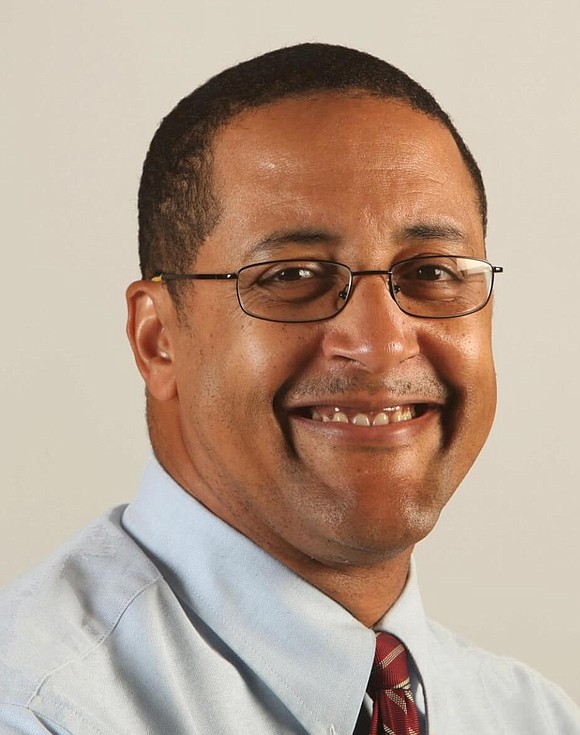Newest anti-homelessness project builds on strong efforts statewide, by Roger Chesley
4/4/2024, 6 p.m.
Nonprofit officials in Roanoke recently refurbished a former motel, transforming the units into permanent housing for the homeless. The move could literally be a lifesaver for those who have survived for years on the streets.
I d o n ’ t make that claim lightly.
Studies and news stories reveal homeless individuals die an average of 12 years sooner than the general population, are sometimes the targets of violent attacks simply because they’re on the streets, and have a tougher time of getting mental health, substance abuse and other types of health care than those with a regular home.
Having a roof over your head doesn’t solve everything — but it can be a critical start. It’s definitely better than the alternative.
A state report says Virginia—compared to other states—does a strong job fighting homelessness. For the 2021-22 fiscal year, for example, “the rate of homelessness per 10,000 on average in Virginia is seven, and remains the fourth-lowest, including all 50 states and territories,” according to the report compiled by the Virginia Department of Housing and Community Development.
We can do even better, though.
In Roanoke, Dawn Sandoval is the executive director of The Least of These Ministries. The nonprofit has transformed a former motel into Suites by TLOT, making it more than just a temporary shelter for the homeless. Officials opened 12 renovated units on Feb. 15, and they’re completing work on the remaining six units.
“We currently serve the unsheltered population and have discovered that many of those experiencing homelessness are on a fixed income,” Ms. Sandoval told me by email. Soaring inflation makes rental homes unaffordable for them, Ms. Sandoval said, and many are also “wading through lengthy wait lists for Section 8 and HUD-VASH vouchers.”
The acronym stands for the U.S. Housing and Urban Development-Veterans Affairs Supportive Housing program.
The ministry’s website notes that people pay an affordable rental rate at the renovated motel. Each room has a full-size bed, private bathroom, refrigerator and other amenities. TLOT also plans to shuttle residents to downtown Roanoke several days a week to help them get to work and take advantage of other essential
services.
On a much larger and comprehensive scale, Virginia Supportive Housing connects the formerly homeless with secure housing. The nonprofit organization, founded in 1988, opened its first housing complex in 1992. VSH now operates 11 housing communities in Richmond, Charlottesville, Norfolk, Virginia Beach, Portsmouth and Chesapeake, totaling 711 apartments, the agency said.
The group seeks to end homelessness by providing permanent housing and supportive services, including counseling, case management and connecting folks
to primary healthcare. People struggling with substance abuse or mental health problems, thus, aren’t just told to figure things out on their own.
VSH uses a model called “Housing First,” which prioritizes housing individuals as soon as possible, then provides services to help maintain stability.
Allison Bogdanovic, VSH’s executive director, told me that in 2023, the organization assisted nearly 1,700 people living in its apartments as well as those who used the organization’s service programs. It had revenues of $16.4 million last year.
Ms. Bogdanovic proudly noted, by email, that 94% of VSH’s residents remain in stable, permanent housing. That means people are protected from threats of violence, extreme weather conditions and more, all of which they might have experienced had they been on the streets. The average length of stay in VSH housing is six years, Ms. Bogdanovic added.
“We remain committed to ending homelessness in our existing footprint and are evaluating the feasibility of expanding into smaller communities,” she
told me.
I learned about VSH when it opened the 60-unit Gosnold Apartments in 2006 in Norfolk, the group’s first foray into Hampton Roads. The $6 million development is in a former RC Cola bottling warehouse. Within the next year, the nonprofit plans for a major renovation and expansion to 100 units.
Joel Chambers, 39, has called Gosnold home since 2019. He suffers from multiple sclerosis and uses a wheelchair. Mr. Chambers spent several months on the streets of the Virginia Beach Oceanfront after bouncing around jobs and serving a brief stint in jail.
Getting connected to a home at the housing complex, though, has been a godsend. Housing advocates directed him to the vacancy. A federal voucher helps pay the rent. “Gosnold makes you feel as though it’s not all over,” Mr. Chambers said. “I have a bit of a sense of legitimacy, humanity, even.”
Efforts like the renovated motel in Roanoke and VSH’s projects help fight homelessness. They transform lives and keep people safe. They’re worthy of publicity and support.
The writer is a columnist for the Virginia Mercury.







